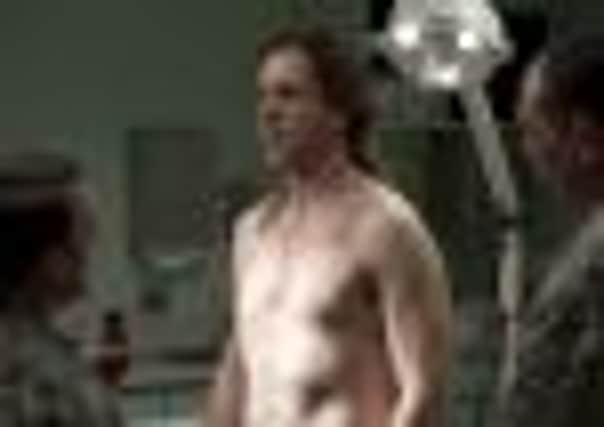TV review: Homeland, Upstairs Downstairs, Melvyn Bragg On Class And Culture


MAYBE not quite as fantastic as the advance billing suggested, the American drama Homeland still made a pretty impressive start with Damian Lewis as the US marine Nicholas Brody, who’s survived eight years at the bottom of a hole in Iraq.
At the precise moment Brody phoned home, there was much bonking and bonging going on. But his wife, who presumed he was dead and had taken up with his best friend, joined with his druggy daughter to tie a yellow ribbon round an old oak tree for his return, with the welcoming party also including the son he didn’t know and the vice-president, plus news crews eager to acclaim him an all-American hero.
Advertisement
Hide AdHe’s not. Lewis is one of us, a witty occasional host of Have I Got News For You no less, though he’s gone undercover in America before, in the cop drama Life which is still much-missed in our house for its existentialism and kumquats. But has Brody been turned by al-Qaeda? Carrie Mathison thinks so. She’s the CIA officer who’s gone behind her boss’s back to bug his house and watch the family refamiliarisation on six screens.
Why, then, the qualified praise? Maybe it’s an adverse reaction to the hype, the “new 24” guff, although I also think I can see where Homeland is going, how it will twist and turn and toy with our emotions. I could be wrong, and hope I am. Lewis hasn’t really shown himself yet, or shown us enough of Brody, although given his hellish existence, perhaps this isn’t surprising. And it almost doesn’t matter, because Claire Danes has already shown us plenty of Mathison.
This renegade agent is always popping little green pills and removing and replacing an engagement ring. Her wash ’n’ go routine was definitely learned from the CIA manual and the section headed “Out in the field… way out” rather than the pages of The Lady. Bored at home, with nothing on her six TVs, she’ll head out to a bar and pick up a stranger. Terrific at her job but crazy with it, she prompts one agency honcho to caution another: “You’ve got a big blind spot about her. I did too and now my wife lives in Palm Beach and I only see my kids twice a year.” It’s a brilliant performance.
I’m thinking of starting up a campaign. The key message will be: “Downton Abbey – boo! Upstairs Downstairs – hurray!” And right away you can see the magnitude of my task: it’s impossible to talk about Upstairs Downstairs without mentioning the Johnny-come-lately-ripoff-but-far-more-successful rival. I want to love Upstairs Downstairs because the poxy Downton – John Hurt’s description, just before he collected the Bafta for being not dead yet – is such a monster. It swallows up everything, including awards and the unlikeliest of fans (you must know some whose devotion surprises you; I certainly do). Upstairs Downstairs can’t help but come across like the maiden aunt who turns up for every family function then sits quietly in the corner, nursing her gin and reflecting on life’s disappointments. But this seems unfair.
It has just as many toffs and serfs. It’s possibly funnier and certainly more daring (I don’t remember anyone killing monkeys in Downton). The second series began straight after the last episode of Call The Midwife, also written by Heidi Thomas, who pours the right amount of tapioca on to her scripts to induce the desired nostalgia pangs. Tapioca got namechecked early on, along with sago. Sample dialogue: “Open the door, Spargo, it’s the Duke of Kent… What the deuce is going on? …Smacking kisses, Percy!” Claire Foy plays what I think you call a bolter, and Keeley Hawes is her usual ravishing self. There’s a good storyline about choosing not to fight (the year is 1938), so come on everyone: hip-hip and pip-pip for Upstairs Downstairs! Be a conscientious Downton Abbey objector!
Full marks for historical accuracy too, at least according to Melvyn Bragg On Class And Culture, which chimed with much of the drama as Lord Melv of High Barnet (geddit?) began his new series at the coronation of George V when the upper, middle and working classes were all at their “brightest”.
Advertisement
Hide AdHe covered a lot of ground at a great lick, which sometimes brought him out in giggles. He was interested in those who believed in one class, including Rudyard Kipling with his poem If, and Len Goodman from Strictly recalling how dancing unified the classes. Well, what he actually said was: “Those palatial ballrooms, the orchestras, you’d think: you’ve got a chance. To get hold of a girl and smooch, maybe a slight touching of the bosom. Come on!”